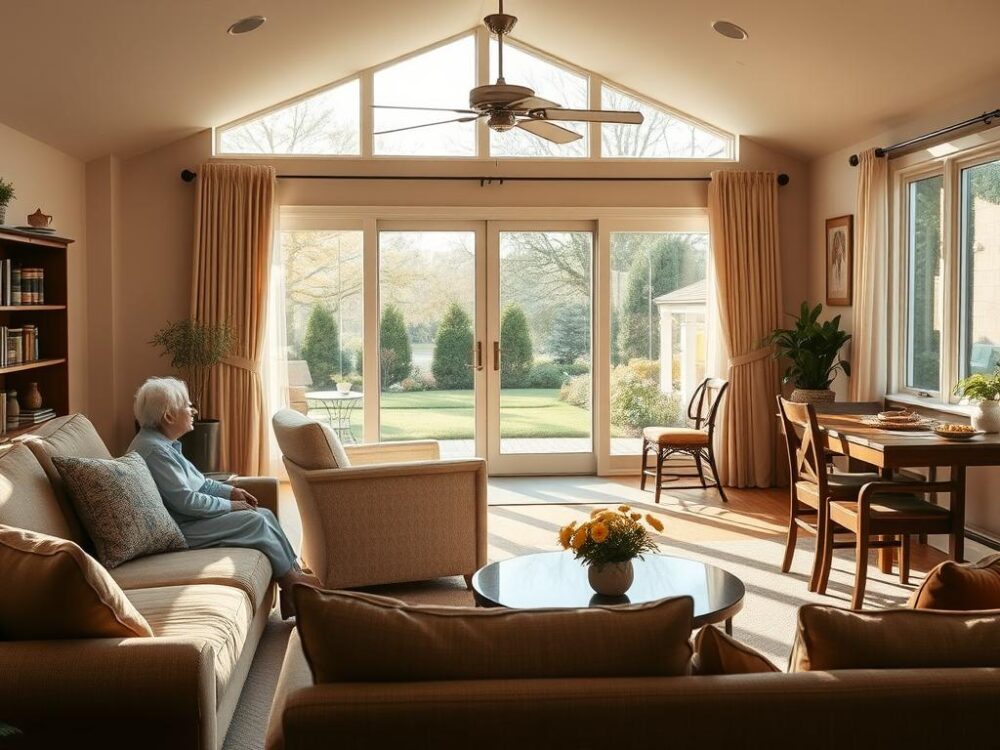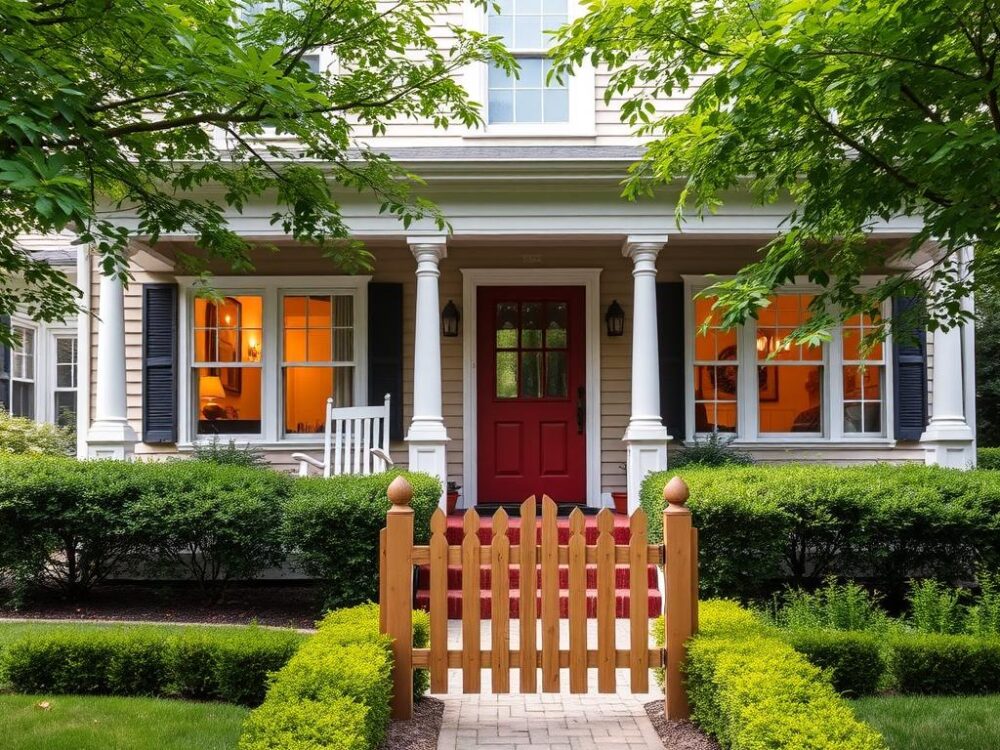
Compassionate Senior Care Boston | Expert Help
October 2, 2024
Dementia Care Services: Expert Support for Loved Ones
October 24, 2024It is a fact that 90% of seniors want to age in their own homes. They find joy and meaning in familiar places. This demonstrates the urgent need for home care services that address individual needs and preferences. In-home nursing unquestionably offers life-changing support today.
Extended Home Care Services in Boston, MA, leads this change. They offer a personalized approach to care and cover all aspects of well-being in clients’ homes in the Greater Boston Area.
Unlike traditional care, personalized care plans are made just for you. This focus on personalization has led to concierge home care services. These services provide top-notch care with teams ready to help anytime.
Understanding the Evolution of Home Care
Home care services have changed a lot over time. In five years, there has been a 40% rise in requests for custom home care, which shows that more people want support that fits their needs.
Traditional Home Care Services
Before, home care was one-size-fits-all. It met basic needs but ignored personal choices. This approach didn’t meet everyone’s unique needs.
The Shift Towards Personalization
There’s been a 25% jump in using tech for personalized home care. This change focuses on care plans that match each person’s needs and health.
There has also been a 15% rise in home care for skilled nursing and palliative care, which shows that more people want specialized care in their homes.
Emergence of Extended Home Care Services
Extended Home Care Services offers 24/7 teams, quick access to doctors, and personalized care plans. It’s designed for those seeking the highest quality of care.
In-home senior care, also known as ageing in place, is becoming increasingly popular. It encompasses personal care, medication reminders, and assistance with mobility. Home health aides are crucial in providing seniors with the support they need at home.
Respite care is also crucial, providing short-term relief to family caregivers. This helps prevent burnout and maintains the quality of care. Services for senior companionship are also expanding, providing support for emotional needs and combating loneliness in older adults.
Comprehensive Assessment: The Foundation of Personalized Care
A thorough evaluation is key to personalized care plans. Healthcare experts perform detailed assessments. They examine your physical, cognitive, and emotional health to create a care plan just for you. This ensures that your care covers all aspects of your life, from health to daily tasks.
The assessment looks at essential parts of your care:
- Medical history and current health status
- Mobility and physical capabilities
- Nutritional requirements and meal preparation needs
- Medication management
- Emotional and social well-being
- Transportation services requirements
- Specific needs related to dementia care, if applicable
Care providers make plans that fit your needs and wishes by involving you and your family. This teamwork ensures that your care plan is detailed and meets your personal goals.
Personalized care plans have significant benefits. They lead to better health and fewer hospital visits. They also improve life by focusing on your health, feelings, and social life. Whether you need help with daily tasks, dementia care, or someone to talk to, a personalized plan offers the proper support. It helps keep your dignity and independence.
Personalized Home Care Services: Tailored Support for Seniors
Personalized home care services are designed for seniors, focusing on their unique needs. They aim to improve the quality of life for older adults who want to stay home.
Assistance with Daily Activities
In-home nursing services offer vital support for daily tasks, including help with eating, bathing, and dressing. Caregivers also assist with meal prep and managing medications, helping seniors stay independent.
Specialized Care for Alzheimer’s and Dementia
Seniors with Alzheimer’s or dementia need personalized care plans. These plans include activities that boost physical, mental, and emotional health. Caregivers engage seniors in games and conversations to fight cognitive decline.
Companionship and Emotional Support
Elderly assistance is not just physical. Caregivers offer companionship, helping seniors feel connected. This emotional support is critical in keeping their dignity and fighting loneliness.
Care plans are flexible and fit various schedules. Regular checks ensure that care plans keep up with seniors’ changing needs, providing ongoing, personalized support.
Developing Customized Care Plans
Creating personalized home care plans is critical for seniors. These plans meet their unique needs, preferences, and goals. They offer full support.
Collaborative Approach with Families
Home care providers team up with families to make care plans. They look at what seniors need for daily tasks, health, and more and figure out how much family help is needed.

Addressing Unique Health Needs
Custom care plans cover daily living help, medicine, and food. They also include emotional support for a complete care approach. Home health aides give personal care based on each senior’s health needs.
Incorporating Personal Preferences
Care plans show what seniors like, keeping them independent and dignified. They might include companionship, respite, and more to improve their quality of life. The care level and how often it’s given change based on the senior’s abilities.
Checking care plans often make sure they stay right. This keeps care top-notch as seniors‘ needs change.
The Role of Technology in Personalized Home Care
Technology has improved personalized home care and helped seniors live better lives. Now, devices can track health signs in real-time, so doctors can spot problems early and help with dementia care.
Telehealth services have grown significantly. They let patients talk to doctors online, which is great for those who need special care or live far from doctors. It means they can get good care without having to travel.
Smart home tech, like voice assistants, makes life safer and more accessible for seniors. These tools help with reminders for meals and meds. They even control the home, making everyday tasks simpler for older adults.
Mobile health apps help with many senior care needs. They remind seniors to take their medications and help with food choices, allowing seniors to manage their health better and need less help from caregivers.
Using technology in home care saves money and improves health. It cuts down on hospital visits and helps catch problems early. This tech makes home care better and more affordable for everyone.
Benefits of Personalized Home Care Services
Personalized home care services offer many benefits for seniors. They provide more than basic care, focusing on people’s needs and likes.
Enhanced Quality of Life
Seniors can stay home, making them feel more comfortable and happy. Home health aides help with daily tasks like bathing and laundry. They meet each person’s specific needs.
This personal care helps keep their lives on track. It lets them hold onto their routines and memories.
Improved Health Outcomes
One big plus of personalized care is the help with medicines. Nurses monitor health, change meds when needed, and provide extra care for serious health issues. Research shows that home care helps people heal faster and have fewer problems.
Increased Independence and Dignity
Personalized home care lets seniors stay independent while getting the help they need. It’s often cheaper than nursing homes or assisted living, especially for those requiring less than eight hours of care daily. It lets them live their lives as they wish, keeping their dignity.
But there’s more. Family members can care for other things, knowing their loved ones are in good hands at home.
Choosing the Right Personalized Home Care Provider
Finding the perfect home care provider is vital to your loved one’s happiness. Consider the provider’s reputation, services, and ability to make custom care plans. Look for agencies that offer companionship, skilled aides, and respite care.
Begin by asking for suggestions from doctors or local groups. Check the credentials and how they vet their staff to ensure quality care. Also, read what others say online to understand their care level.
Choose a provider that values caregiver training. Good providers keep their staff up-to-date on caring for complex needs. This means your loved one gets the best care possible.
Think about how flexible the care provider is. As your loved one’s needs evolve, you’ll want a service that can too. Look at their ability to offer different levels of care.
Technology is vital in today’s home care. Pick a provider that uses tech to improve care, keep in touch, and keep your loved one safe. The best provider will focus on all aspects of well-being to boost life quality.
Long-Term Care Solutions: Aging in Place with Personalized Support
Personalized home care services make ageing in place a reality. They adapt to your changing needs, keeping you independent and comfortable at home. Nine out of ten older adults prefer staying home over moving to a facility.
Adapting Care as Needs Change
Your care plan changes as your needs do. Services range from basic help to specialized dementia care. Caregivers give over 15 million hours of care each year, meeting different needs.
Integrating Family Support and Professional Care
Combining family help with professional care creates a robust support system. This mix ensures your loved ones stay involved while you get expert help. Services include meal prep and transportation tailored to your needs.

Ensuring Continuity of Care
Consistency in care is key for long-term health. Regular checks and ongoing monitoring help adjust your care plan as needed. Some providers use apps to share care insights with families, offering peace of mind.
With many caregivers across locations, quality care is within reach for many. The cost of home care varies, but the value of staying at home is immeasurable.
Conclusion
Personalized home care services have revolutionized the way we assist the elderly. These services provide individualized support tailored to each person’s specific needs, enhancing their quality of life. They encompass physical, emotional, and social support through customized care plans.
Opting for in-home nursing and care can lead to cost savings compared to hospitals or other facilities while ensuring that seniors receive high-quality care and avoid hefty medical expenses.
Numerous success stories demonstrate how personalized care promotes independence and combats loneliness. Finding the right caregiver is key to ensuring comfortable and effective care, which also contributes to caregiver retention.
Care plans can be adjusted to provide ongoing support as needs evolve or change. Technology now plays a significant role in personalized care, improving communication and monitoring. It aids in various tasks such as medication management and mobility, enabling seniors to maintain their independence at home.
Involving families in the care process further strengthens the support system. Personalized home care services foster a network of support that caters to each individual’s unique needs.




